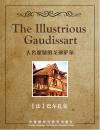On a winter's night, about two in the morning, the Comtesse Jeanne d'Herouville felt such violent pains that in spite of her inexperience, she was conscious of an approaching confinement; and the instinct which makes us hope for ease in a change of posture induced her to sit up in her bed, either to study the nature of these new sufferings, or to reflect on her situation. She was a prey to cruel fears,—caused less by the dread of a first lying-in, which terrifies most women, than by certain dangers which awaited her child.
In order not to awaken her husband who was sleeping beside her, the poor woman moved with precautions which her intense terror made as minute as those of a prisoner endeavoring to escape. Though the pains became more and more severe, she ceased to feel them, so completely did she concentrate her own strength on the painful effort of resting her two moist hands on the pillow and so turning her suffering body from a posture in which she could find no ease. At the slightest rustling of the huge green silk coverlet, under which she had slept but little since her marriage, she stopped as though she had rung a bell. Forced to watch the count, she divided her attention between the folds of the rustling stuff and a large swarthy face, the moustache of which was brushing her shoulder. When some noisier breath than usual left her husband's lips, she was filled with a sudden terror that revived the color driven from her cheeks by her double anguish.
本书属于《人间喜剧》中哲理研究的一部分。小说以十六世纪法国封建专制时代为背景,描写一个被父亲憎恨的贵族孩子悲惨的一生。在这篇“研究”中,世俗的封建观念与顺应自然的圣洁心灵形成强烈的对比和尖锐的冲突。艾蒂安超凡脱俗的气质,使他几乎与十九世纪的所谓“通灵者”一样能洞察天地的奥秘。但这种聪慧敏感的灵魂似乎不可避免地与孱弱的体质结合在一起,他们与社会格格不入,只能与大自然为伴,一旦踏入社会,在专横残暴的封建淫威统治下,很快就惨遭毁灭。
By the French author, who, along with Flaubert, is generally regarded as a founding-father of realism in European fiction. His large output of works, collectively entitled The Human Comedy (La Comidie Humaine), consists of 95 finished works (stories, novels and essays) and 48 unfinished works. His stories are an attempt to comprehend and depict the realities of life in contemporary bourgeois France. They are placed in a variety of settings, with characters reappearing in multiple stories.
- PART I HOW THE MOTHER LIVED
- PART II HOW THE SON DIED
- 书评 写书评
- 笔记
-
书评加载中...





20141029150733785522.jpg)
201410291509258711776.jpg)




20141029150519282424.jpg)
201410291508528591159.jpg)










 京公网安备 11010802032529号
京公网安备 11010802032529号
笔记加载中...